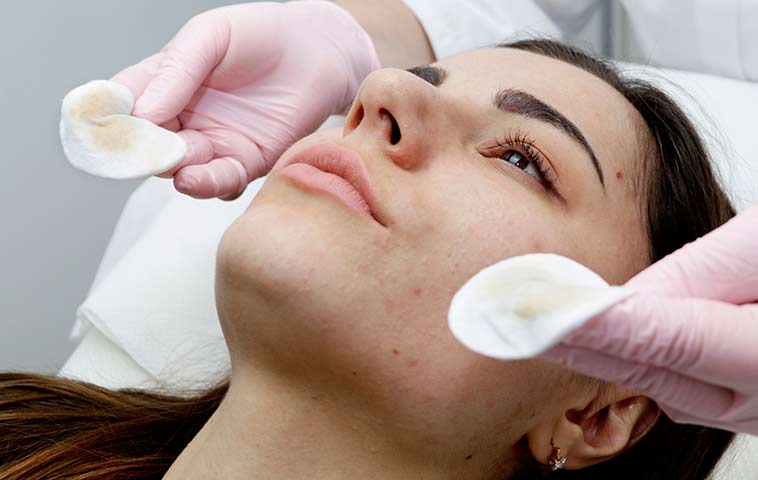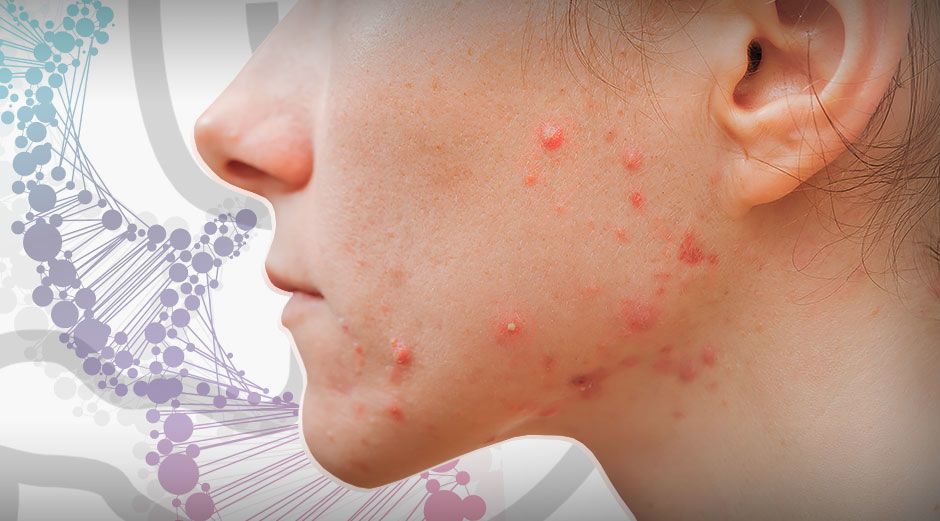Acne Skin Care
Acne is a serious condition and should be treated under the supervision of a dermatologist. If the problem is limited to a couple of acne (comedones, pustules) and clogged pores, you can solve it yourself with the help of dermatocosmetics.
If the situation is serious, cystic inflammations, deep subcutaneous pimples (nodules) or nodular acne have appeared, in this case it is better to consult a specialist. He will help prescribe medication, including, among other things, antibiotics, hormonal drugs, as well as drugs with isotretinoin. Under such circumstances, self-medication can only exacerbate the problem.
Skin care
Your daily skincare routine should include an intensive facial cleansing step with an antibacterial face wash. Once a week, use a gentle exfoliation and a soothing facial mask.

Ask your dermatologist for advice!
Severe forms of acne, in addition to daily home care, need medical treatment. There are many treatment options, and the choice of a particular procedure depends on the severity of the disease and the type of skin. Together with a dermatologist, you will be able to choose a treatment program that will ideally cope with your problem.
Types of acne treatment
Local therapy: the affected areas of the skin are treated with balms, tinctures, gels or lotions.
Drug treatment: If topical therapy has not been successful, oral drug options should be considered.
Alternative medicine: Ayurveda, kinesiology, Bach flowers, traditional Chinese medicine, and bioresonance can also help with acne.
Whether it is necessary to treat?
Acne marks and pimples on the face and body can make a person’s life uncomfortable, they take away self-confidence and create psychological problems in communication. At some point, a person despairs of waiting until “everything goes away by itself” and decides to treat acne correctly, that is, he makes an appointment with a dermatologist.
How to get rid of acne
Exfoliation. Exfoliation of the keratinized layer of cells and intensive cleansing of the skin at a deeper level with the help of scrubs, peels, gommages, masks. The frequency of procedures depends on the type and condition of the skin.

Bactericidal agents. Pharmaceutical cosmetics have a bacterial effect on the epidermis, slowing down the rate of development of propionobacteria, which contribute to the development of new imperfections, dry existing rashes and reduce sebum production. The composition of such funds includes active ingredients in high concentrations, allowing you to comprehensively deal with the problem of rashes.
Antibiotics. For the treatment of stage 3 and 4 acne (moderate and severe), a dermatologist prescribes systemic antibiotics: minocycline, doxycycline, tetracycline and erythromycin.
Hormone therapy. For the treatment of acne in adulthood caused by a hormonal imbalance in the body, a dermatologist prescribes appropriate tests and hormone therapy.
Retinoids. With regular use, vitamin A derivatives, aimed at normalizing skin cell renewal, effectively fight acne and post-acne (scars and hyperpigmentation), even out skin tone and relief, and accelerate the exfoliation of dead skin cells.
Phototherapy. Acne treatment with phototherapy (radiation) is based on the impact on problem areas of the skin with an intense stream of light, while reducing the production of sebum. The procedure also improves blood circulation in the sebaceous glands, which contributes to reparative processes.
